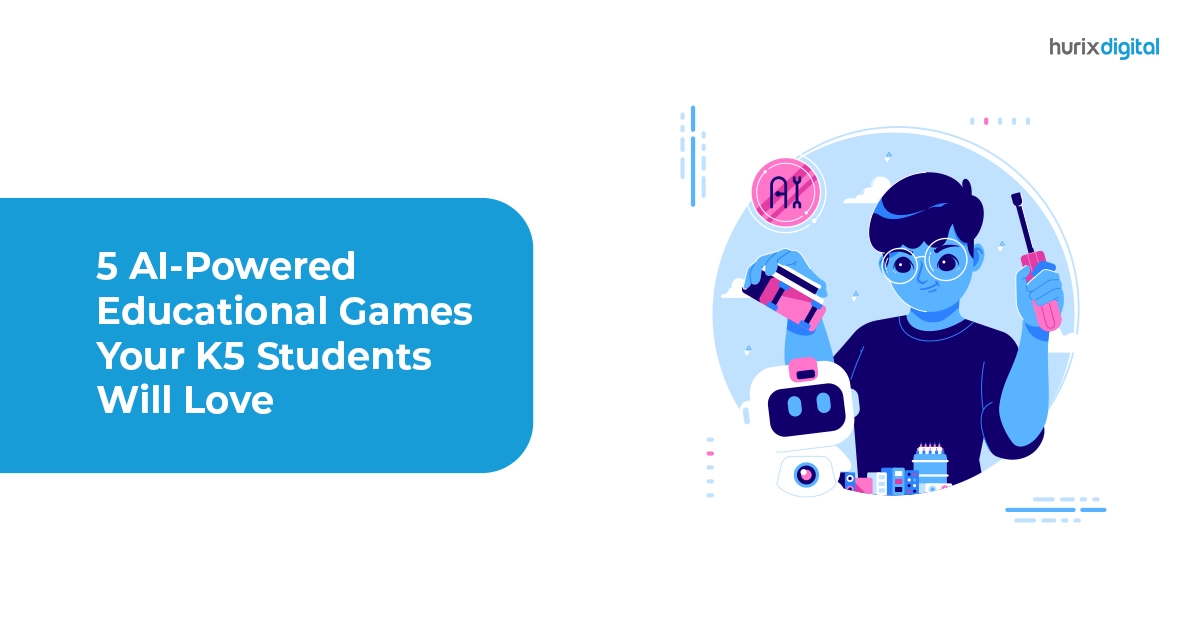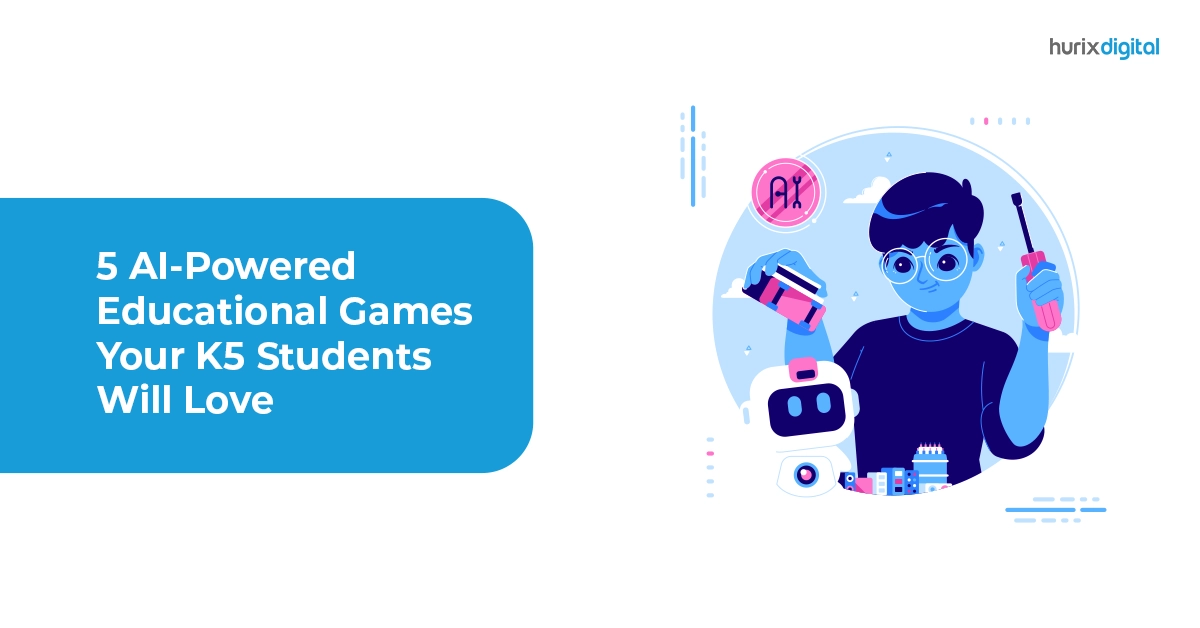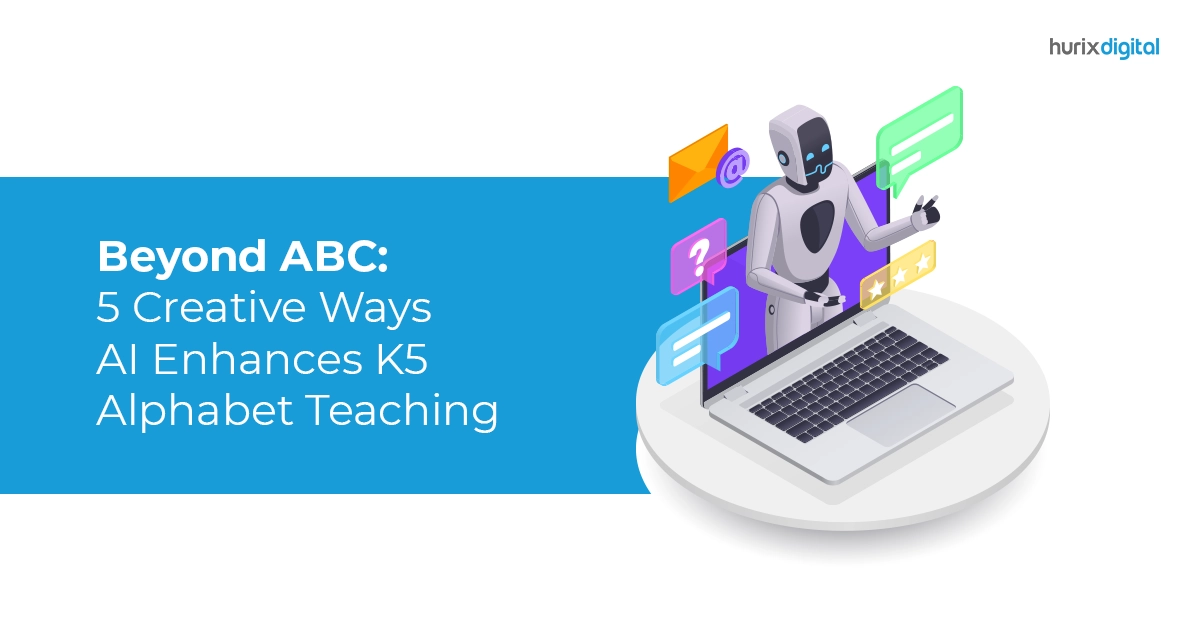Summary
This lesson introduces students to the fundamentals of AI. Students will learn how to train computers through robotics and programming. They will also learn how to train computers through programming and testing.
In today’s rapidly evolving world of technology, it is imperative to prepare young minds for the future. Did you know that AI could contribute up to $15.7 trillion to the global economy by 2030?
This means our students will enter an increasingly AI-driven workforce. Integrating AI in curriculum planning is crucial to equip students with the 21st-century skills necessary to thrive in the digital age.
In this article, you’ll learn about the importance of AI in curriculum design and what to teach in an AI curriculum for K5 students.
Table of Contents:
- What Is Artificial Intelligence for K5 Students?
- Importance of AI in Curriculum Development for K5 Students
- Empowering K5 Students through AI in School Curriculum
- Wrapping Up!
What Is Artificial Intelligence for K5 Students?
Artificial intelligence is the art of teaching computers how to make decisions. AI education helps students learn how to train computers through programming and testing.
Students can design art, program games, and even robots. Through this progressive method of learning, students can become the creators of their realities.
Importance of AI in Curriculum Development for K5 Students
AI education introduces school students to the fundamentals of robotics and AI. It allows students to reflect on their thinking. AI education encourages students to solve complex problems, analyze data, and make informed decisions, nurturing their critical thinking abilities.
Let’s take a look at some of the other reasons why teaching AI to K5 students is essential.
1. Future-Proofing Education
Just like numerous technological breakthroughs in history, the increasing adoption of AI will lead to the creation of new disciplines and jobs.
By introducing AI tools, concepts, and applications at an early stage, you can better prepare students for the future job landscape. It will give them a foundational understanding of AI, which can be valuable for their careers.
2. Developing Digital Literacy
AI literacy is critical in today’s world, where algorithms drive online communication, content recommendations, and digital problem-solving. Integrating AI education into schools helps students develop essential digital literacy skills.
Just as students learn to read and write, understanding AI is emerging as a vital component of modern literacy.
3. Social and Ethical Implications
The rapid progress of AI technology has raised several social and ethical questions. By teaching AI to K5 students, you can instill values such as bias mitigation, fairness, and privacy from an early age.
Students also learn to assess the ethical implications of AI technologies, guaranteeing ethical and diligent utilization in their future pursuits. This will empower them to be considerate and responsible AI creators and users.
4. Problem-Solving Skills
AI education helps foster critical thinking and problem-solving skills in K5 students. It teaches students to break down complex problems, identify patterns, and create algorithms.
These skills are not only valuable for AI but for a wide range of challenges in life. Ignoring AI is akin to disregarding social media just a decade ago or neglecting the internet in the late 20th century.
5. Adaptive Learning
AI can personalize education by assessing each student’s learning pace and style, thus making learning more engaging and effective. By understanding AI, students can better appreciate and adapt to AI-driven educational tools.
Furthermore, early exposure to AI can help bridge the diversity and gender gap in the tech industry. Encouraging all students to explore AI-related subjects can lead to a more inclusive tech workforce in the future.
Also Read: AI-Powered Education: Revolutionizing K-12 Learning through Robotics and AI
Empowering K5 Students through AI in School Curriculum
There are simple and easy ways to integrate AI into learning, regardless of the subject or the grade level.
You can weave the fundamental concepts of AI, such as ethical design and data science, into any classroom. It will help students comprehend the potential impact of AI in both the present and the future.
Here are some topics that should be covered in an AI curriculum for K5 students.
1. Introduction to AI
Start with a simple and engaging explanation about what robots and AI are. Use relatable examples like voice assistants, chatbots, or recommendation algorithms. Explain how AI can understand and make decisions based on data.
Show your K5 students how AI is integrated into their environment or everyday lives. Discuss how AI powers video games, suggests movies, and even helps doctors make diagnoses.
This helps them understand the relevance of AI in their world.
2. AI’s Problem-Solving Abilities and AI Applications
Use games, puzzles, and simple programming tasks to introduce basic problem-solving using AI. Encourage students to think like AI by identifying patterns.
Students encounter AI with navigation systems in cars and Snapchat filters, sparking their curiosity to delve deeper into its mechanisms. You can answer their innate eagerness to comprehend how AI works, equipping them with information on this transformative technology.
3. AI Ethics and Safety
Educate young learners on the importance of fairness, privacy, and bias in AI systems. Discuss the potential consequences of AI decisions and how they can affect individuals and society.
Ensure students understand the importance of using AI safely. Teach them how to identify online threats and how to safeguard their privacy when using AI tools or the Internet.
4. Creative AI
Inspire creativity by introducing AI’s role in art and music. Show how AI can generate art, compose music, or help design video games. Allow students to experiment with AI-powered creative tools.
Discuss how AI is used in space exploration, from spacecraft navigation to analyzing space data. Instill a sense of wonder about the limitless possibilities of AI.
5. AI and Stories
Explain complex AI concepts using storytelling. Create stories or narratives that involve AI characters and their adventures. This makes AI more relatable and memorable for young minds.
Highlight AI’s influence in fields like ecology and biology. Explore how AI is used to protect wildlife, predict natural disasters, and study ecosystems. This broadens the students’ perspective on AI applications.
Also Read: AI in Curriculum Development: Opportunities and Challenges
Wrapping Up!
The AI curriculum for K5 students should be engaging, age-appropriate, and hands-on. This is important to help students comprehend the fundamentals and the societal impact of AI.
Educators, parents, and society as a whole have a responsibility to empower the next generation with the knowledge and skills they need to navigate and shape the AI-driven world. However, transforming the curriculum is a significant task that often demands valuable time and resources.
The good news is that you can seek the services of digital curriculum providers to develop the perfect AI curriculum. With access to 4000+ digital learning objects, Hurix Digital is one of the best curriculum providers that can help transform your educational experience.
We specialize in tailoring learning solutions for students from elementary to high school, offering an array of engaging tools, including multilingual multimedia-rich content, game-based learning, and simulation-based learning.
Connect with us today to expedite your AI curriculum development process!










